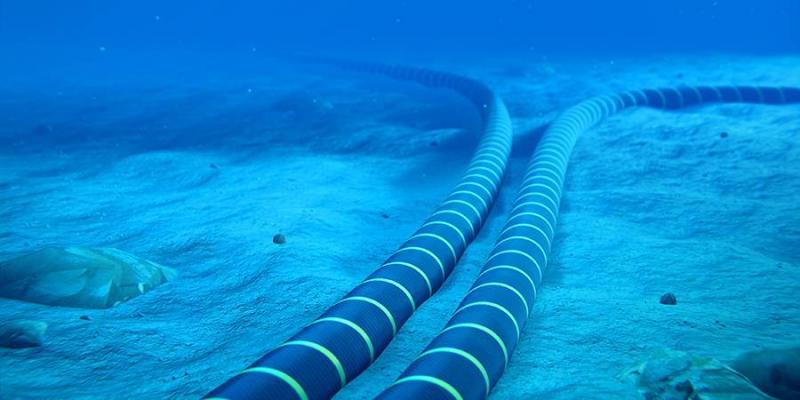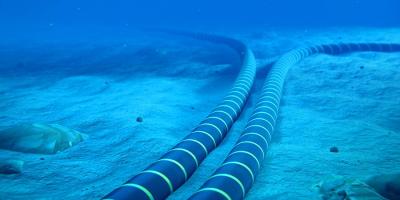Four informed sources told Reuters that state-owned Chinese telecommunications companies are developing a $500 million undersea fiber optic internet cable network that will connect Asia, the Middle East, and Europe to compete with a similar project backed by the United States. The same sources noted that China's three major telecommunications companies—China Telecom, China Mobile Limited, and China Unicom—are working on one of the most advanced and long-range underwater cable networks in the world.
According to Reuters’ sources, who requested anonymity because they are not authorized to discuss potential business secrets, the proposed cable, known as EMA (Europe, Middle East, Asia), will connect Hong Kong to the southern Chinese island province of Hainan before heading to Singapore, Pakistan, Saudi Arabia, Egypt, and France.
The sources added that "the cable, which will cost around $500 million upon completion, will be manufactured and laid on the seabed by HMN Technologies, a rapidly growing Chinese cabling company."
The Chinese Ministry of Foreign Affairs stated in a release to Reuters that it "always encourages Chinese companies to make foreign investments and open avenues for cooperation," without directly commenting on the cable project. The ministry opposed the "United States' violation of established international rules" regarding cooperation in the field of undersea cabling.
The ministry stated that "the United States should stop fabricating and spreading rumors about so-called 'data monitoring activities' and cease defaming Chinese companies and tarnishing their reputation."
The Chinese-led EMA project aims to compete with another cable project currently being implemented by the American company SubCom, which will also connect Singapore to France via Pakistan, Saudi Arabia, Egypt, and six other countries. This project is called CMX-6, or Southeast Asia, Middle East, and Western Europe-6.
The news of this project follows a report published by Reuters last month that revealed how the U.S. government, concerned about Beijing's potential surveillance of internet data, has thwarted several Chinese undersea cable projects abroad over the past four years. Washington has also halted licenses for private projects aimed at constructing undersea cables that were supposed to connect the U.S. to Hong Kong, including those led by companies such as Google, Meta Platforms, and Amazon. This plan marks a sign that the intensifying technological war between Beijing and Washington risks disrupting internet operations.




